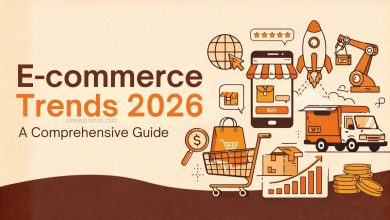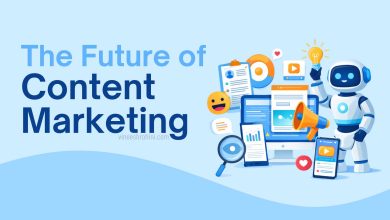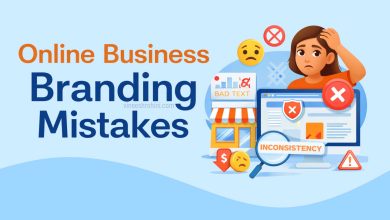4 Key Trends Shaping the Future of B2B E-commerce
The landscape of business-to-business (B2B) e-commerce has undergone significant transformation over the past few years, driven by rapid technological advancements and changing buyer behaviors. In this essay, we will explore four key trends that are shaping the future of B2B e-commerce and discuss their implications for businesses. These trends include the rise of mobile commerce, the adoption of AI and automation, the importance of customer experience, and the growth of personalized and data-driven strategies.
The Rise of Mobile Commerce in B2B
Mobile commerce, commonly known as m-commerce, is a trend that has profoundly impacted the B2B e-commerce space. With the proliferation of smartphones and tablets, B2B buyers are increasingly using mobile devices to browse, research, and place orders. This trend is driven by the convenience and flexibility that mobile devices offer, allowing buyers to access product information and make purchases on-the-go.
The implications of mobile commerce for B2B businesses are substantial. To cater to the growing number of mobile users, companies need to ensure that their websites and e-commerce platforms are mobile-friendly and responsive. Mobile apps and optimized interfaces are also becoming essential tools for B2B companies to provide a seamless and efficient mobile shopping experience for their customers. Neglecting mobile optimization can lead to a loss of potential customers and reduced customer satisfaction.
Additionally, B2B marketers need to adapt their strategies to target mobile users effectively. This includes optimizing content for mobile consumption, leveraging social media platforms popular among mobile users, and using geolocation-based marketing to target potential clients based on their real-time locations.
AI and Automation in B2B E-commerce
Artificial Intelligence (AI) and automation are revolutionizing the B2B e-commerce industry, streamlining processes, and enhancing customer experiences. AI-powered tools are transforming traditional B2B sales and marketing strategies by providing valuable insights into customer behavior, enabling personalized product recommendations, and automating routine tasks.
One of the most significant applications of AI in B2B e-commerce is predictive analytics. By analyzing vast amounts of data, AI algorithms can forecast customer preferences, anticipate demand patterns, and identify potential cross-selling or upselling opportunities. This helps businesses tailor their offerings and promotional strategies to meet the specific needs of individual customers, leading to higher conversion rates and customer satisfaction.
Moreover, automation plays a crucial role in improving efficiency in B2B operations. Automated inventory management, order processing, and supply chain logistics reduce human errors, minimize costs, and accelerate order fulfillment. This results in faster delivery times and better customer service, which are vital factors in building long-term relationships with B2B clients.
However, the adoption of AI and automation also raises concerns regarding job displacement. While some tasks may become automated, it is essential for businesses to upskill and reskill their workforce to handle more complex and creative roles in the digital age.
Customer Experience as a Competitive Differentiator
In the B2B realm, customer experience is rapidly emerging as a critical differentiator for companies. Today’s B2B buyers expect the same level of seamless, personalized, and intuitive shopping experiences they encounter in the B2C world. As a result, B2B businesses must focus on enhancing their customer experience to stay competitive.
One way to improve customer experience is by leveraging data and analytics to understand customer preferences, pain points, and buying behavior. By collecting and analyzing customer data, businesses can identify areas for improvement and tailor their offerings to meet the unique needs of each client.
Furthermore, investing in self-service tools and customer portals can significantly improve the B2B buying process. Self-service platforms empower customers to access product information, track orders, and manage their accounts independently, reducing the need for manual assistance and enhancing overall satisfaction.
Another crucial aspect of customer experience is seamless communication and support. B2B companies should invest in live chat, chatbots, and 24/7 customer support to address customer queries promptly and efficiently. Personalized customer service builds trust and loyalty, ultimately driving repeat business and word-of-mouth referrals.
Personalization and Data-Driven Strategies
In the age of data, personalization has become a game-changer in the B2B e-commerce landscape. Buyers now expect relevant and tailored experiences, and businesses that can deliver on this expectation stand to gain a competitive advantage.
Data-driven strategies are at the core of personalization in B2B e-commerce. By collecting and analyzing customer data, businesses can create targeted marketing campaigns, personalized product recommendations, and relevant content that resonates with their target audience. Data-driven insights also help B2B companies identify opportunities for growth, optimize pricing, and forecast demand accurately.
Moreover, personalization extends beyond marketing efforts. B2B businesses can use data to customize pricing and offer negotiated rates based on customer order history and volume. Implementing dynamic pricing strategies ensures that customers receive competitive rates while maintaining healthy profit margins for the seller.
However, personalization also brings with it privacy and ethical considerations. B2B companies must prioritize data security and transparently communicate their data collection practices to gain customer trust.
Conclusion
In conclusion, the future of B2B e-commerce is shaped by several key trends that are transforming the industry. The rise of mobile commerce emphasizes the need for mobile-friendly platforms and targeted mobile marketing strategies. AI and automation are streamlining processes, enabling data-driven decision-making, and enhancing customer experiences. Customer experience has become a vital differentiator in the B2B space, emphasizing the importance of personalization, self-service, and seamless communication. Lastly, personalization and data-driven strategies are central to meeting customer expectations and driving long-term success.
As B2B e-commerce continues to evolve, businesses that adapt and embrace these trends will be better positioned to thrive in an increasingly competitive and digitally-driven marketplace. By leveraging technology, prioritizing customer experience, and using data-driven insights, B2B companies can achieve sustainable growth and build lasting relationships with their clients.



